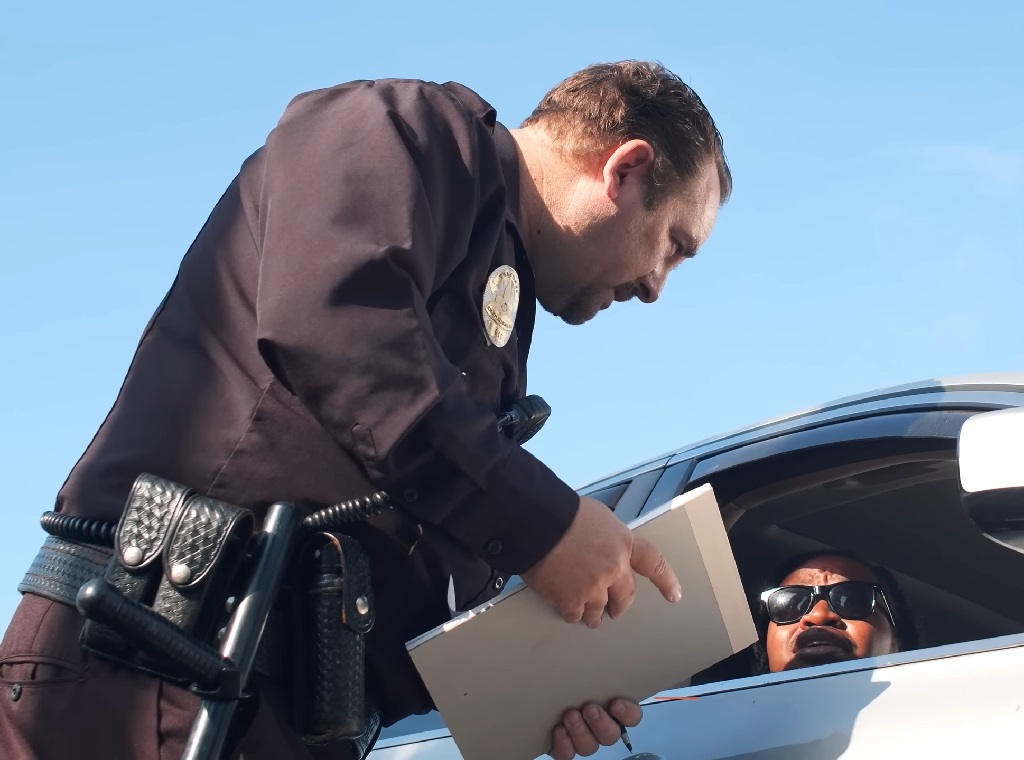Getting pulled over by law enforcement is stressful for anyone. If you don’t speak English, the experience can quickly become confusing, intimidating, or even dangerous. So what should you expect?
If you don’t speak English and get pulled over in Texas, you still have the same constitutional rights as anyone else. This includes the right to remain silent, the right to a lawyer, and the right to refuse a vehicle search.
The challenge comes in making sure you understand what’s happening and that officers understand you.
Texas police are not required to speak your language. However, they are expected to make sure you understand your rights, especially if you are being detained or arrested.
According to the American Civil Liberties Union (ACLU), both citizens and non-citizens are protected by the U.S. Constitution during traffic stops, regardless of the language they speak.
This article will explain what typically happens during a traffic stop in Texas, how language barriers affect your legal rights, and what steps you can take to stay protected.
You’ll also learn when and how to request professional interpretation support that can make a major difference in your safety and legal outcome.
Table of Contents
ToggleWhat Happens During a Traffic Stop in Texas
If you’re pulled over in Texas, knowing what to expect can help you stay calm and avoid mistakes, especially if English is not your first language. Here’s how a typical traffic stop unfolds.
1. The Officer Signals You to Stop

You’ll see flashing lights behind your vehicle. As soon as it’s safe, pull over to the right side of the road and stop your car. Turn off the engine, roll down your window, and turn on your interior light if it’s dark.
2. Stay Inside the Vehicle
Remain seated with your hands on the steering wheel. Avoid reaching for anything until the officer asks. Sudden movements can make officers feel threatened, even if your intentions are innocent.
3. You’ll Be Asked for Documents
The officer will usually request three things:
- Your driver’s license
- Vehicle registration
- Proof of insurance
If any of these are in the glove box or another compartment, inform the officer before reaching for them.
4. Questions May Follow

You are not required to answer questions beyond confirming your identity and providing your documents.
You do not have to explain where you’re going, where you’re coming from, or your immigration status. You have the right to remain silent.
5. You May Be Asked to Step Out
Texas officers are legally allowed to ask you to step out of the car during a traffic stop. If asked, comply calmly and follow instructions.
6. The Officer May Issue a Warning or Ticket
After checking your information, the officer will either issue a warning, write a citation, or let you go. What happens often depends on your conduct and whether a violation occurred.
7. Do Not Argue at the Scene

If you disagree with the stop or the ticket, do not argue with the officer. Sign the citation if required. This is not an admission of guilt. You can contest it later in court with the help of an attorney.
Your Rights and What To Do If You Don’t Speak English
If you get pulled over in Texas and don’t speak English, you are still protected by law. Language does not limit your constitutional rights. The key is knowing how to respond and when to ask for help.
Basic Rights You Still Have
- You have the right to remain silent
- You do not have to consent to a vehicle search
- You have the right to ask why you were stopped
- You can refuse to answer questions about your immigration status
- You have the right to a lawyer if arrested
However, language barriers can make it harder to exercise these rights clearly.
Language Barrier vs. Your Rights
| Your Right | What Can Go Wrong If You Don’t Speak English | What You Should Do |
| Remain silent | Officer may think you’re ignoring questions | Say “Interpreter, please” or show a written card |
| Refuse search | Miscommunication may be taken as consent | Clearly say or signal “I do not consent to a search” |
| Understand charges or ticket | You may sign or accept something you don’t understand | Politely ask for a translator before signing anything |
| Ask for legal help | Delay or confusion in getting legal assistance | Say “I want a lawyer” and stop talking immediately |
| Protect immigration status | You may be pressured into answering personal questions | Say nothing about your immigration or travel history |
Use a Professional Interpreter if Possible
You can request an interpreter at any point during or after the stop, especially if you’re being questioned, detained, or arrested. Relying on bystanders, family members, or untrained officers is not safe or accurate.
For in-person help during legal or official situations, consider professional onsite interpretation services.
A trained interpreter ensures you understand your rights and responses are translated accurately. This can protect you from legal mistakes and serious misunderstandings.
What To Do If Your Rights Were Violated
If you believe your rights were ignored or violated during a traffic stop, especially due to a language barrier, you can take action. Stay calm during the stop, but document everything afterward.
What to Document

- The officer’s name and badge number
- The patrol car number or license plate
- The exact time, date, and location of the stop
- A description of what happened
- Whether you asked for an interpreter
- Any witnesses or passengers present
- Photos of any injuries or damage, if applicable
Write everything down as soon as you can while it’s still fresh in your memory.
File a Complaint
Every law enforcement agency has a process for submitting complaints. You can usually:
- File online through the department’s website
- Visit the department’s office in person
- Submit by mail
- Remain anonymous, in many cases
Seek Legal Help
Contact an attorney, especially if:
- You were arrested
- You were searched without consent
- You signed papers you didn’t understand
- You were questioned about immigration
- You were denied interpretation
A lawyer can advise you on how to proceed and whether your rights were violated. If you cannot afford one, ask for a list of free or low-cost legal aid services.
Frequently Asked Questions (FAQ)
Conclusion
Getting pulled over in Texas can be overwhelming, especially if you don’t speak English. You are still protected by law. You have the right to remain silent, the right to refuse a search, and the right to request an interpreter.
Your response during the stop can influence the outcome, so stay calm and focus on protecting your rights.
If you are unsure what to do or feel that your rights were not respected, ask for help from qualified professionals. Legal advisors and trained interpreters can guide you through the process. You can check similar services in your area for support.
Knowing your rights and how to respond helps you stay safe, make informed decisions, and protect yourself during any interaction with law enforcement.
Related Posts:
- Meow Wolf Summer Concert Series 2025 - Full Lineup,…
- How Can Houston Residents Expect FEMA to Assist…
- How Has Houston’s Music Scene Evolved Over the Years?
- How Has Lakewood Church Evolved Over the Years?
- Top 5 Reasons Texans Choose Home Health Support Over…
- Tobacco Laws in Texas 2025: What You Need to Know














